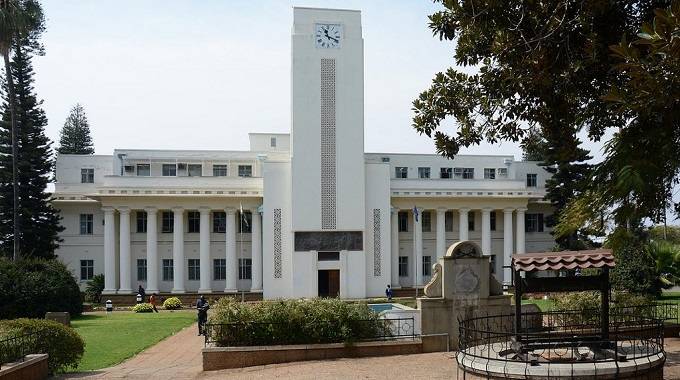The Bulawayo City Council (BCC) has commended residents for participating in the online 2021 budget consultation meetings.
The local authority has proposed a ZW$17.1 billion budget for 2021.
This year’s consultations are being held on WhatsApp due to the restriction on public gatherings of more than 50 people as part of measures to control the spread of Covid-19.
Speaking during a review of the consultative process, Tuesday, organised by the Bulawayo Progressive Residents Association (BPRA), BCC Finance director Kimpton Ndimande noted that the local authority reached out to more residents than it has in physical meetings for previous budget consultations.
“We would like to commend the residents for their cooperation during the online budget consultation meetings. The response we got from them is quite overwhelming. We have never had such interaction even during times when we would hold physical meetings,” said Ndimande
Ndimande acknowledged concerns raised by residents on the use of online platforms to gather their views on the budget.
“We do acknowledge our shortcomings. This is something that we did for the first time. We have noted some of the factors, especially that of time that other residents would still be at their respective work places. In the future we will make sure that we improve,” he said.
“However, those who did not have the opportunity to partake should not despair. We are still engaging our residents via WhatsApp as they can still send their contributions directly to our public relations department. We also held a physical meeting with our residents who have no access to social media platforms today at the city hall to capture their contributions.”
Ndimande explained that the proposed budget is influenced by the current economic situation hence the council is not spared from the exorbitant prices of goods and services.
“The resources we use for service delivery are obtained locally and everyone is alive to the fact that goods and services are expensive. We can only be able to meet the demands of we price our services accordingly,” Ndimandi said.
BPRA representative Ntokozo Tshuma hailed the local authority for the initiative but pointed out that there little time allocated to interact with residents.
He also pointed out that the language used in the budget statement was too technical.
“The time was limited, discussions were being held between 1PM and 3PM. Some residents would have been still at work during this time. By the time you go through the discussions the interaction sessions would be over and they would have to send their contributions to the Public Relations. This demotivated other residents,” Tshuma said.
“Some of the documents which were uploaded on these platforms were too technical and for residents without an accounting or finance background it was difficult to understand. What’s worse is the fact that these documents were shared on WhatsApp platforms about 30 minutes before the meeting starts. This allocation was too limited for residents to fully digest the contents of the digested budget.”
After the consultative process, the local authority will submit the proposed budget to the Local Government ministry for approval.

